css选择器
#################
选择器
- 每一条CSS样式的定义都由两部分组成,形式如下:选择器{样式}。
- 在之前的部分就是“选择器”,“选择器”指明了应用这些“样式”的网页元素。
简单选择器:
(1)id选择器:#id,通过元素id唯一确定一个元素,在css框架中很少有
<!DOCTYPE html> <html> <head> <style> #demo { text-align: left; color: red; } </style> </head> <body> <p id="demo">Hello World!</p> <p>xxxxx.</p> </body> </html>

(2)元素选择器:通过元素名称选择同类型的元素,在css框架中用的很多:
<!DOCTYPE html> <html> <head> <style> p { text-align: left; color: red; } </style> </head> <body> <p>the style.</p> <p id="demo">Me too!</p> <p>And me!</p> </body> </html>
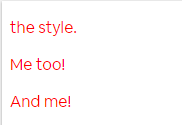
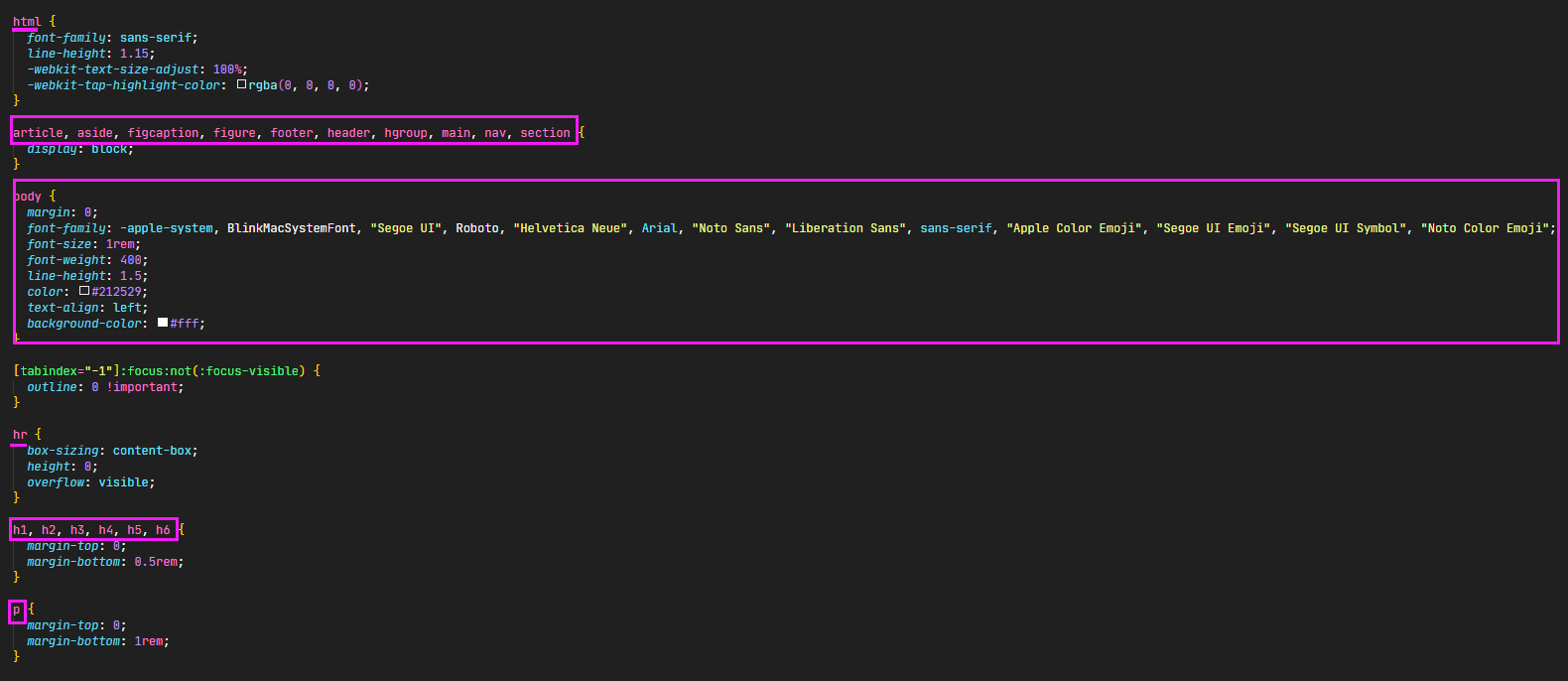
(3)分组选择器:逗号分割即可,对多个元素配置相同的样式设置,在css框架中用的很多::
<!DOCTYPE html> <html> <head> <style> h1, h2, p { text-align: left; color: red; } </style> </head> <body> <h1>Hello World!</h1> <h2>Smaller heading!</h2> <p>This is a paragraph.</p> </body> </html>




(4)类选择器:选择具有相同class属性的所有元素:在css框架中用的最多:
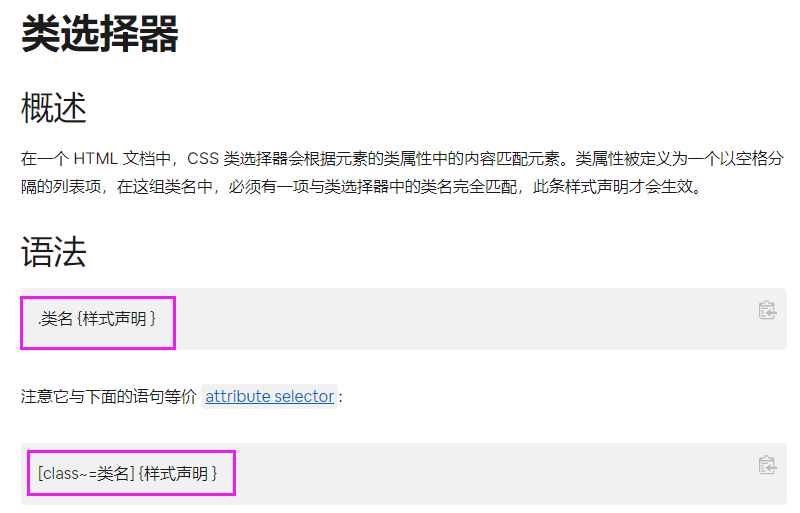
<!DOCTYPE html> <html> <head> <style> .left{ text-align: left; color: red; } </style> </head> <body> <h1 class="left">Red and center-aligned heading</h1> <p class="left">Red and center-aligned paragraph.</p> </body> </html>

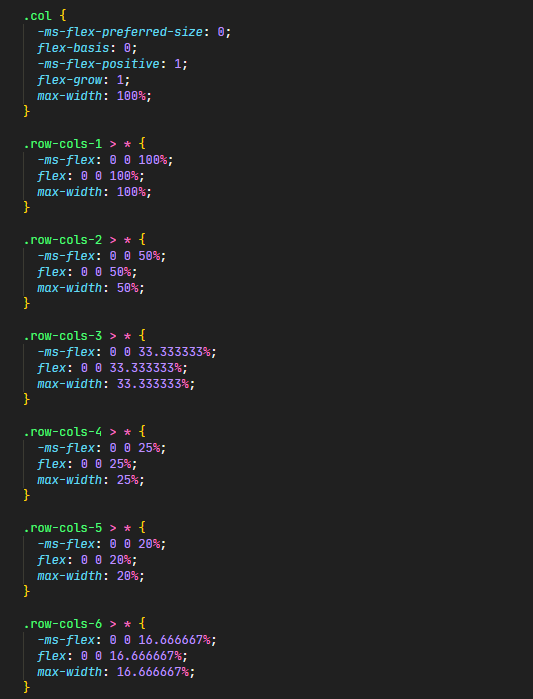
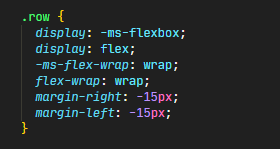
多类选择器:同一个元素有多个类,类名称之间无顺序要求,用空格分开即可:
我们假设 class 为 important 的所有元素都是粗体,而 class 为 warning 的所有元素为斜体,class属性中同时包含 important 和 warning 这两个单词的所有元素还有一个银色的背景:
<html> <head> <style type="text/css"> .important {font-weight:bold;} .warning {font-style:italic;} .important.warning {background:silver;} </style> </head> <body> <p class="important">This paragraph is very important.</p> <p class="warning">This is a warning.</p> <p class="important warning">igoodful is my name</p> </body> </html>
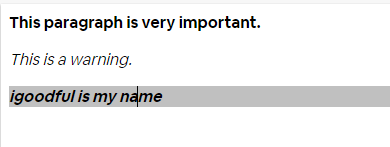

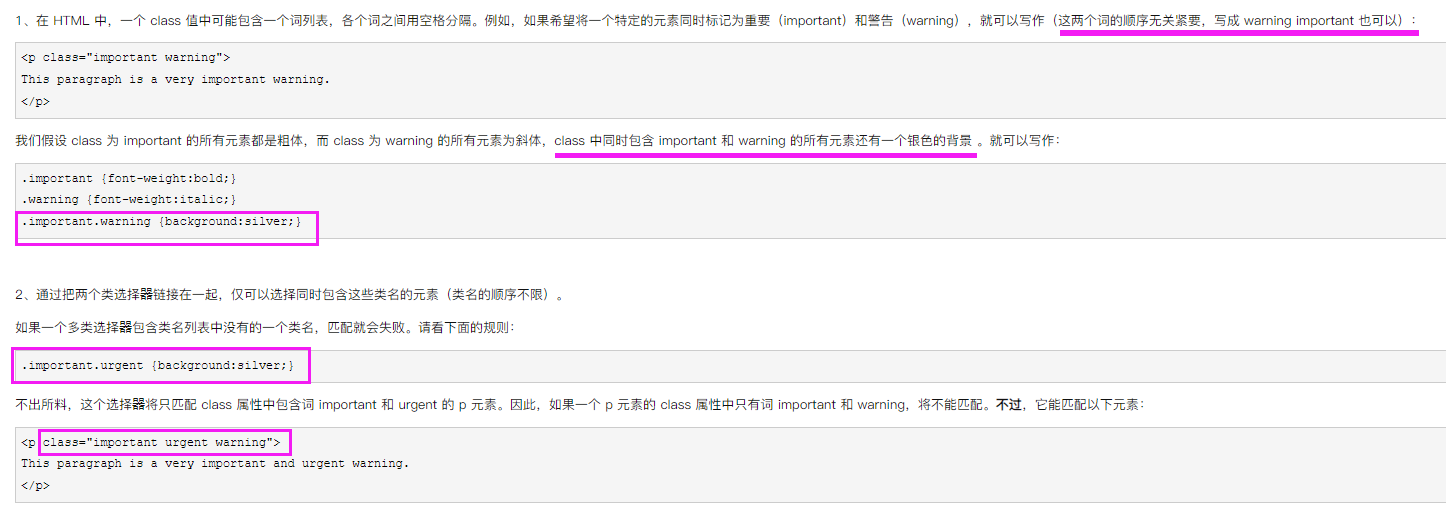
在html中,class="类名+空格+类名",表示该元素同时拥有两个类
元素类选择器:通过element.class:
<!DOCTYPE html> <html> <head> <style> h1.left { color: red; } </style> </head> <body> <h1 class="left">This heading will not be affected</h1> <p class="center">This paragraph will be red and center-aligned.</p> <h1 class="center">This heading will not be affected</h1> </body> </html>
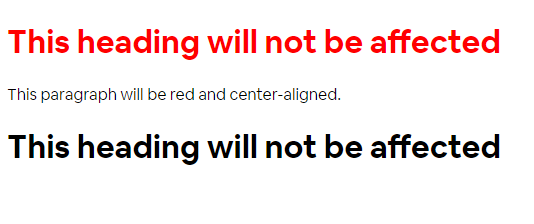
元素class属性具有多个值:
<!DOCTYPE html> <html> <head> <style> p.demo { text-align: left; color: red; } p.large { border: 10px solid green; } </style> </head> <body> <h1 class="demo">This heading </h1> <p class="demo">This paragraph.</p> <p class="demo large">xxxxx</p> </body> </html>

后代选择器:元素A 元素B:表示在元素A中的所有元素B:(元素B是元素A的后代,至于多少代则不管)
<!DOCTYPE html> <html> <head> <style> div p { background-color: green; width:50%; } </style> </head> <body> <div> <p>Paragraph 1 in the div.</p> <p>Paragraph 2 in the div.</p> <section><p>Paragraph 3 in the div.</p></section> </div> <p>Paragraph 4. Not in a div.</p> <p>Paragraph 5. Not in a div.</p> </body> </html>

子选择器:元素A > 元素B:表示在元素A中的所有的直属元素B:(B元素是元素A的亲生儿子)
<!DOCTYPE html> <html> <head> <style> div > p { background-color: green; width:50% } </style> </head> <body> <div> <p>Paragraph 1 in the div.</p> <p>Paragraph 2 in the div.</p> <section><p>Paragraph 3 in the div.</p></section> <!-- not Child but Descendant --> <p>Paragraph 4 in the div.</p> </div> <p>Paragraph 5. Not in a div.</p> <p>Paragraph 6. Not in a div.</p> </body> </html>
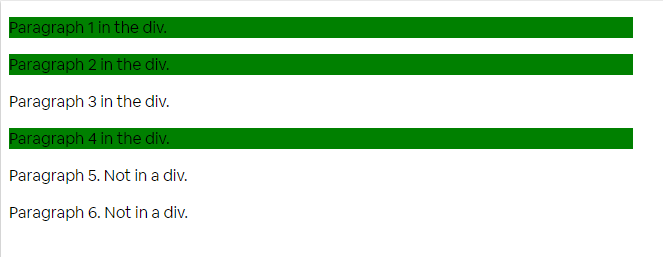
相邻兄弟选择器:元素A + 元素B:紧跟元素A屁股后面的第一个元素B:
<!DOCTYPE html> <html> <head> <style> div + p { background-color: green; width:50% } </style> </head> <body> <div> <p>xxx</p> <p>yyy</p> <div> <p>xxx</p> <p>yyy</p> </div> <p>ccc</p> <p>bbb</p> </div> <p>1111</p> <p>222</p> <div> <p>dddd</p> <p>gggg</p> </div> <p>444</p> <p>5555</p> </body> </html>
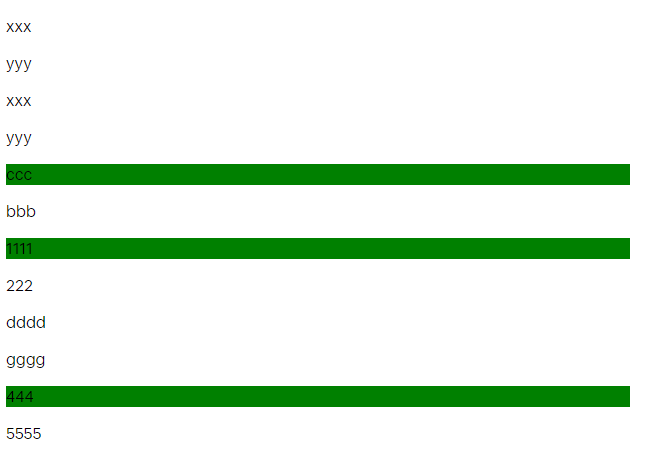
通用兄弟选择器:元素A ~ 元素B:在dom树结构中,在元素A后面且与元素A在相同层次的所有元素B:
<!DOCTYPE html> <html> <head> <style> div ~ p { background-color: green; width:50%; } </style> </head> <body> <p>Paragraph 1.</p> <div> <p>Paragraph 2.</p> </div> <p>Paragraph 3.</p> <p>Paragraph 4.</p> <div> </div> <p>Paragraph 5.</p> <p>Paragraph 6.</p> </body> </html>
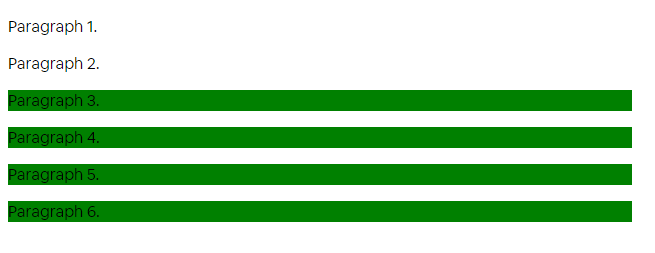
属性选择器:
:[属性A]:表示在html中写上了属性A的所有元素:
<style> [class] { background: green; } </style>
:[属性A = "xxx"]:表示属性A的值为xxx的所有元素:
<style> [class="top"] { background: green; } </style>
:[属性A ^= "xxx"]:表示属性A的值以xxx开头的所有元素:
<style> [class^="top"] { background: yellow; } </style>
:[属性A $= "xxx"]:表示属性A的值以xxx结尾的所有元素:
<style> [class $="xxx"] { background: green; } </style>
:[属性A *= "xxx"]:表示属性A的值包含字符串xxx的所有元素:
<style> [class *="xxx"] { background: green; } </style>
:[属性A ~= "xxx"]:表示属性A的值中包含单词xxx的所有元素:
<!DOCTYPE html> <html> <head> <style> [title~=flower] { border: 10px solid yellow; } </style> </head> <body> <img src="klematis.jpg" title="klematis flower" width="150" height="113"> <img src="img_flwr.gif" title="flower 单调递 " width="224" height="162"> <img src="landscape.jpg" title="咕嘎嘎 flowers - landscape" width="160" height="120"> </body> </html>
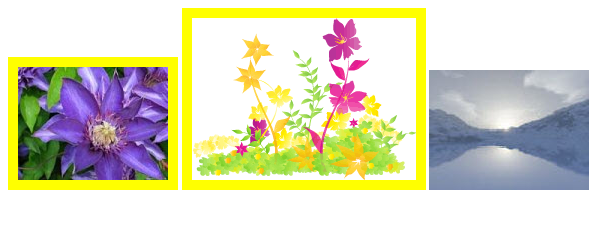
伪类选择器:
:root,等价于元素html选择器,即根元素选择器,匹配文档根元素html。配置常见的字体、颜色、尺寸(屏幕的尺寸)

#############
igoodful@qq.com


